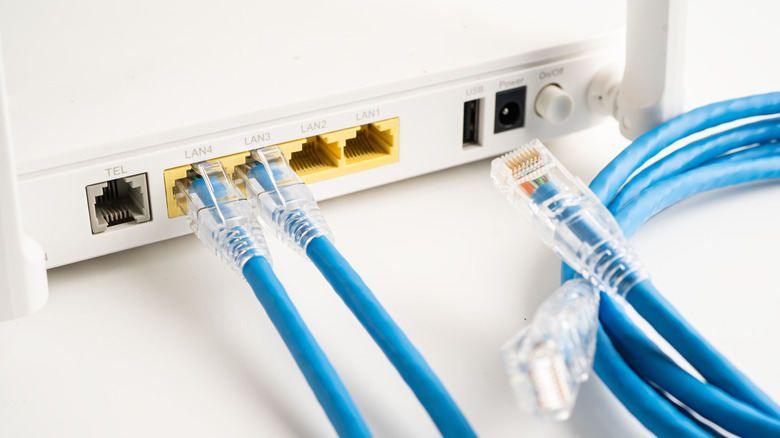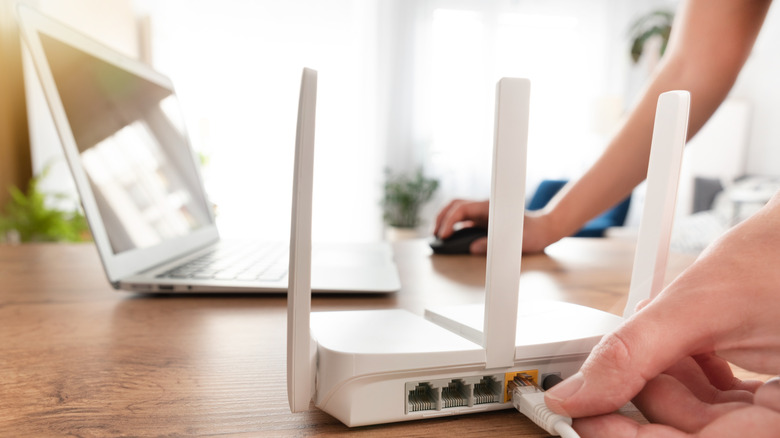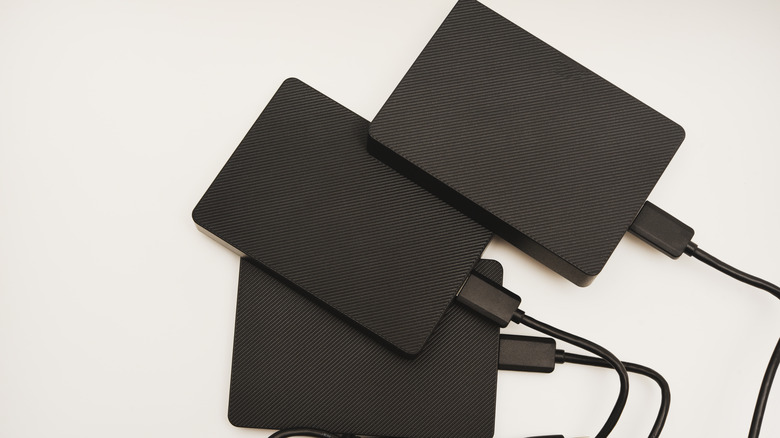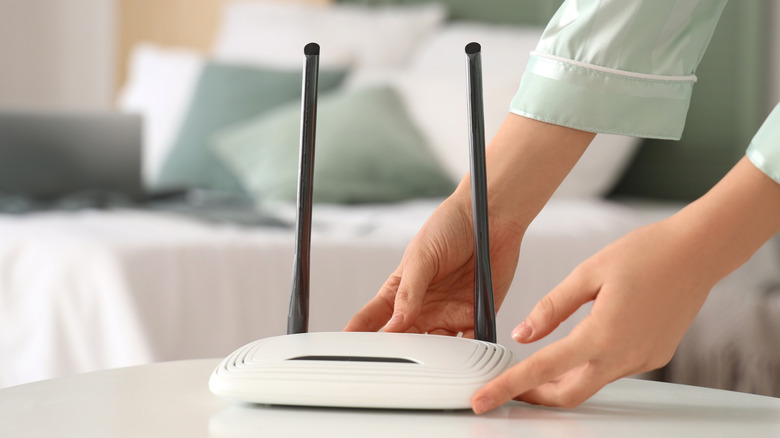Never Plug These 3 Devices Into Your Router's USB Port
We may receive a commission on purchases made from links.
For most of us, Wi-Fi connectivity is a way of life. It allows us to work, communicate, and play games without being tied to fixed locations or cables. And behind this convenience is the Wi-Fi router, which is an essential part of your Wi-Fi network. Now, given that this device is crucial for a smooth and fast internet connection, there are things you'll want to consider when buying a router. After all, since their debut, routers have undergone significant changes; they're no longer the boring little boxes we used to tuck in an out-of-the-way place and remember them just when your internet speed is slow.
Today, many modern routers include USB ports that manufacturers market for their versatility. Some are designed to support data transfer and power small appliances, while others may only be used to update your router's firmware.
With that in mind, even though there are many ways of using your router's USB port, it's worth noting that not every USB external accessory is compatible with your router. Of course, some compatible devices, say flash drives and printers, are safe. However, there are some you'll want to avoid, since plugging in the wrong hardware can easily slow down your network, expose you to security risks, or, in the worst-case scenario, damage both your router and connected device. That being said, here's a look at some of the devices that you should never plug into your router's USB port.
Power-hungry devices like smartphones, laptops, and tablets
You've probably had the thought of charging your smartphone or laptop with your router's USB port, especially if you've lost your device's charger. And while it's possible, you'll want to give it a second thought, as it can quickly backfire. Generally speaking, not all routers are created equal. While some modern routers may support smartphone charging, others are limited to small gadgets that need just a trickle of energy.
Now, most routers feature either USB 2.0 or 3.0, which typically supplies very low current — often 2.5 to 4.5 watts. When compared to the current that power-hungry smartphones and laptops need, that's definitely not enough to charge your devices. As such, if you use your router's USB to charge an iPhone 17 Pro Max, the phone will charge slowly (or perhaps not at all). In the worst-case scenario, even if you are using the best Wi-Fi Routers, that extra load means the router will strain as it tries to distribute power.
As a result, your router will overheat, potentially shortening its lifespan or even leading to automatic shutdowns during heavy usage. With that said, if you are looking for a safe and effective charging alternative, you'll want to invest in a dedicated USB charging hub. After all, for around $15-$40 on Amazon, you can acquire a hub such as the Anker 122W Max 6-Port Charging Station, that provides proper charging power for multiple devices simultaneously.
High-capacity external hard drives
Among the many ways to use your router's USB port is that you can plug an external hard drive to create a quick network-attached storage (NAS) solution. This way, your router can act as a central hub for data where you can allow multiple users and devices to access, share, and store files. Of course, for many, this can feel like an easy win for accessibility and convenience. But before you hook up that external hard drive, you'll want to consider a few things.
First and foremost, not all routers have the necessary power or processing capability to handle large storage devices reliably. While some models can easily support 2TB and 4TB drives, others are bound to have some issues when processing these drives. In fact, if a drive is larger than 8TB, the drive might fail to run in the first place, or you might experience random disconnections.
Sometimes, your router might support your external hard drive, but when it comes to performance, you will likely be disappointed. After all, as mentioned earlier, many routers still utilize USB 2.0 ports, which have slower data transfer speeds. This limitation can make transferring large files or streaming media directly from the router slow and unreliable. On top of that, security is another concern. Routers lack the strong encryption features found in dedicated NAS devices. This means that when you connect your hard drive to a router, you might leave your personal files vulnerable to unauthorized access.
Unknown or untrusted USB flash drive
Generally speaking, it's a bad idea to plug an untrusted USB device into your router's USB port. The reason? Hackers often use USB ports on almost every device as entry points for malware and different types of cyber attacks. This means that if you stick a USB device that you don't own into your router, the chances of infecting your network with malicious scripts or viruses are always high. After all, most devices found in public places, handed out as promotional giveaways, or purchased from questionable sources, may contain preloaded malware designed to compromise routers and all connected devices.
Even worse, attackers can use these malicious devices to corrupt or completely overwrite your router's firmware. When this happens, they might install a modified version that disables firewalls, intercepts your internet traffic, or even spies on your online activity without your knowledge. That's why it's always crucial that you follow best practices to protect yourself from USB-based attacks. You can achieve this by avoiding buying used thumb drives and testing the devices if you decide to take the risk. For added security, you'll want to protect your router by updating its firmware, using guest networks, and enabling WPA2 or WPA3 encryption.



